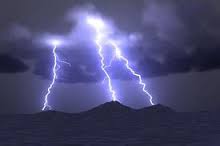The King and His Kingdom

To a believer the Lord Jesus is not only Lord and Saviour, but also our King. We, who know Him as Saviour and Lord, know Him in relation to the Assembly and the House of God, but we also need to appreciate something of His Kingdom and our place within it. We are well aware of our relationship with the Lord Jesus as our Saviour, the One who died for us and bore the judgment of God for our sins. We know Him as Lord, the One who is my Master, to whom I am accountable in my service for Him and through whom all my blessings flow. As our Head He is directing me in my daily life and providing spiritual nourishment and wisdom. But do I acknowledge Him as my King, the One who has rule over my affairs in this world, who sets out the standards by which my behavior is conducted before men, and who has appointed me as an ambassador to represent His Kingdom in this world. The Kingdom over which the Lord has His royal rights is known by a number of names, but most commonly as the Kingdom of God. Entrance into that Kingdom today-and since His death, resurrection, and ascension to heaven-is by profession. Whether the profession is real or not, it requires His citizens to comply with the governmental laws and statutes of the Kingdom and is accompanied by the promise of a judicial review at His public presentation whether in heaven (for the believer) or on earth (for the mere professor).
God established kingly powers in the Garden of Eden when He delegated dominion to Adam to rule over the creation which He had made. We know the first man failed and sin entered into the world, but Adam’s failure brings to light God’s perfect man, our Lord Jesus as outlined in Psalm 8:5-8 and repeated in Hebrews 2:7-8. God later established a national kingdom in this world when He brought out the children of Israel from Egypt, and in that kingdom we have the direct rule of God over the earthly nation (Exodus 15:16-18). As King He gave them laws and statutes, appointed officers, and arranged their affairs and directed their movements through the wilderness and into the land. Then when the people had their land and their cities they wanted a king of their own appointing. Samuel, God’s judge and prophet, spoke against this, but the people would not listen to him; God made clear that they had not rejected Samuel but had rejected Him (1 Samuel 8:7). The people’s king, Saul, proved a disaster but then God anointed His representative king in David, and by a covenant established a kingdom which was after God’s mind. God declared that David’s family would be His Kingly line and we see the land made great and all the enemies removed by the power of God, exercised by the king. Then followed the display of God’s glory in and by David’s son, Solomon, when his rule followed, and the magnificent temple built for the dwelling place of God and the showing forth of His shekinah glory. All was guaranteed to David’s progeny, but they failed and did not follow God’s law and statutes, ignoring His warnings through His prophets. God comes in with judgment, and under Nebuchadnezzar gives to the Gentiles the territory and establishes their right to govern, but does not give up His rights. (Daniel 2:37-38). God does not constitute or recognize this Gentile nation as His Kingdom, nor give it sacrifices or laws; indeed one of the first acts of the new kingdom was to establish idolatry. But in the end of the prophecy which establishes this Gentile kingdom we see God’s mind revealed in Daniel 2:44-45. We look on now to the fulfillment of this in Christ’s Kingdom on earth when the "times of the Gentiles" end and the King from Heaven establishes His Kingdom from Jerusalem when the whole world will ultimately be under His rule.
During this period of Gentile rule the King of God’s Kingdom was presented on earth (Matthew 1-4). We find in Matthew 2:2: "Where is the king of the Jews that has been born? for we have seen his star in the east, and have come to do him homage." Note well, He was born a king, not one born to be a king. Our Lord Jesus came to this earth to claim His Kingdom as the Messiah of Israel and His presentation follows. John the Baptist, as the forerunner, announces the Kingdom of the Heavens as being at hand and calls on the Jewish people to repent and prepare for Him, and a godly remnant is seen of those who accepted this testimony and were baptized. In Matthew 5-7 He proclaims the laws or principles by which the Kingdom will be governed, and teaches men to be in right relations with both man and God, who He reveals as a Father in Heaven. Here we have the expression Kingdom of God first mentioned, and it is clear that this Kingdom is not defined geographically or physically, as in the Old Testament, but rather morally, that is in our behavior: "righteousness, peace, and joy in the Holy Spirit" is a sphere where God’s will is seen. In the Gospel of Matthew we have two expressions which give distinction to the book, namely "the Kingdom of Heaven or the Heavens" and the "Heavenly Father or Father in Heaven." The first term is found exclusively in Matthew and in accordance with the presentation of the King in this Gospel we understand that this denotes the rule of heaven over earth and confirms Daniel 4. Apart from four references to the heavenly father or father in heaven in Mark and Luke, all of the remaining 14 are found in Matthew. There follows in chapters 8-9 the display of the power of the King with the miracles of healing and the subjection of nature. Chapters 10-11 outline the preaching of the Kingdom by the disciples as well as the King Himself, and in chapter 12 we find that the King is rejected and the King thereupon leaves the house (Israel) and goes to the sea side (Gentiles).
Matthew 13 presents the Kingdom in mystery form (like onto), which is to be understood by those who are given spiritual wisdom (v. 35), and provides the history of the Kingdom of the Heavens during the King’s rejection and absence. In summary, the Kingdom of Heaven is that aspect of the Kingdom of God which sets out the dispensational bearing of God’s Kingdom and emphasizes that Heaven rules over the affairs of men.
The Kingdom has many aspects to bring to light the overarching reach of this subject; in Matthew 13 there are two further references to the Kingdom: "of the Son of Man" (v. 41) and "the Kingdom of their Father" (v. 43). Both of these designations look on to a future day: first when our Lord Jesus as Son of Man takes rule over the entire universe and brings in His rule for the display of the will of God here in this world. The second aspect, that of "their Father," reveals those children who have been given to Christ during the time of his rejection and who, in the coming day of His glory, will shine forth as the sun.
Subsequent parables in Matthew 20, 22, and 25 give further details of the likeness of the Kingdom of Heaven. Then in Matthew 26:29 there is revealed a further designation as "My Father’s Kingdom," a time when in the Lord’s earthly kingdom established here in this world those who have been brought to know God as Father-including those from repentant Israel-will be brought into the joy and blessedness of the place.
The description of the Kingdom as "Our Father David’s," is found in Mark 11:10. It is a name given by the disciples as our Lord entered Jerusalem and the crowds thronged Him calling Hosanna. Picture this scene before the Jewish people: the promised Messiah entering His city and establishing His reign as outlined in the Psalms and Prophets, the glory of the King, Israel being God’s nation, and all the peace and prosperity of the Davidic Kingdom. But this is not to be-the King is rejected and the fulfillment of the prophecies still awaits, but on a yet grander scale.
In John’s Gospel we find the clear statement of the Lord Jesus as the King of Israel in the confession of Nathanael (John 1:49), representative of the Godly remnant in the Jewish nation, but the King is rejected; indeed from the outset of the Gospel we read, "He came onto His own and His own received Him not" (John 1:11). We find the conclusive finale of His rejection at the trial and crucifixion when Pilate would present our Lord, "Behold your king!" And the response of the crowd, "Crucify Him…we have no king but Caesar" (John 19:14-15). The whole world was represented at the cross where the Saviour laid down His life: "And Pilate wrote a title also and put it on the cross. But there was written: Jesus the Nazaraean, the King of the Jews. This title therefore many of the Jews read, for the place of the city where Jesus was crucified was near; and it was written in Hebrew, Greek, Latin" (John 19:19-20).
The Kingdom of Christ (Ephesians 5:5) provides us with the holiness and righteousness which will mark the reign of God’s anointed King, the One who demonstrated the perfection of manhood here in this world, where God’s will is perfectly expressed, and which will be characteristic of the Kingdom.
Colossians 1:14 introduces us to the "Kingdom of the Son of His love," and it is love that marks those who are of that Kingdom. We are brought into a regime of love, the love of God shed abroad, love that caused our Saviour to give Himself for His own. There is more, however, as being brought into this association as sons with Him, to be before our Father in the public display of this love relationship now as in His Kingdom.
There remain two further facets of this glorious Kingdom: the first "the Heavenly Kingdom" (2 Timothy 4:18) and second "the Everlasting Kingdom" (2 Peter 1:11). In the first the apostle is contrasting the wicked Roman kingdom wherein he is suffering unjustly with a kingdom governed by righteousness and where the reward for faithfully serving His master is assured. Not death at the hands of a criminal tyrant but the blessedness of heavenly peace and contentment. In the second, the everlasting feature of the Kingdom reminds us that there is no successor to this kingdom; the earlier kingdoms of this world have come and gone: Babylon, Medes and Persians, Greece, and Rome and all the following powers are ended or to be ended by the power and majesty and dominion and authority of the Lord Jesus, who will reign supreme as King of Kings and Lord of Lords, bringing every ruler or king into suzerainty. This rule will bring to fruition the prophecy of Daniel 4:34-35 and establish a perfect government in this world by a Man and vindicate God, as outlined in Revelation 11:15.
It is our desire that this meditation may lead out our hearts to the Lord Jesus and cause that here in this world we may exhibit the features of our King and Sovereign, as His ambassadors and servants.
This meditation flowed from reading the "Kingdom of God & Kingdom of Heaven" by George Davison (Precious Things, July/, 1956 Volume). That article was written as an answer to a question regarding the difference between the Kingdom of God and the Kingdom of Heaven.





